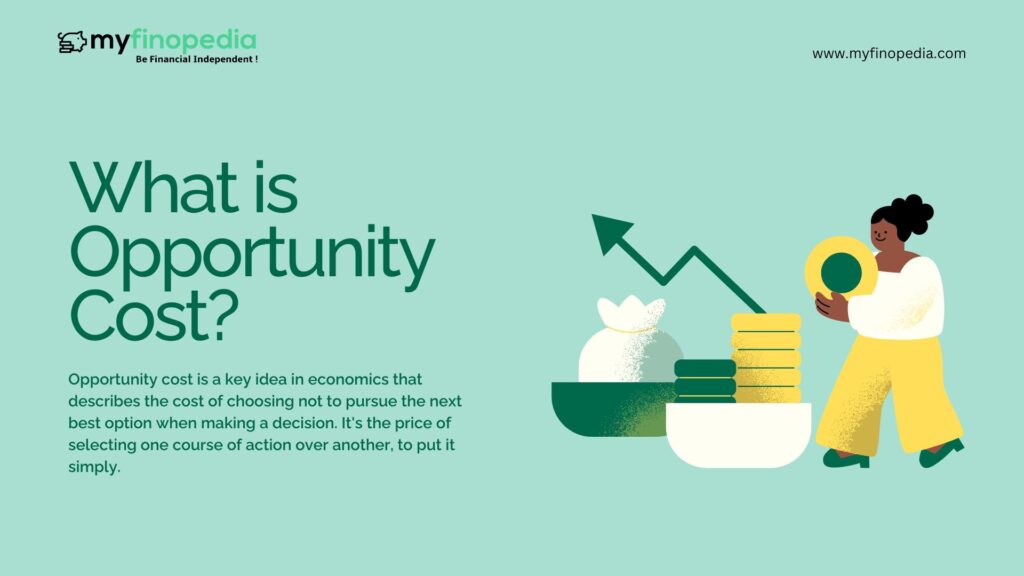Opportunity cost is a key idea in economics that describes the cost of choosing not to pursue the next best option when making a decision. It’s the price of selecting one course of action over another, to put it simply. Even though there may not be any actual financial transactions involved, this cost nevertheless indicates the worth of what is given up or sacrificed.
- Consider the following scenario: you have 500 rupees and you can either use it to purchase a movie ticket or a new book. The worth of the book you could have bought instead is the opportunity cost if you decide to buy the movie ticket.
- On the other hand, the satisfaction or experience you would have had from seeing the movie represents the opportunity cost if you choose to purchase the book.
- Opportunity cost is essential to decision-making because it enables people and organisations to weigh the advantages and disadvantages of various options. Through an awareness of opportunity cost, people are able to manage their resources—whether they be financial, time, or other assets—in a more intelligent manner.
- In economics, production possibilities frontier (PPF) graphs—which show the trade-offs between two options—are frequently used to depict opportunity cost. For instance, a nation might have to choose between manufacturing butter and firearms. The opportunity cost is the quantity of butter that could have been produced instead if it decides to make more guns, and vice versa.
- All things considered, opportunity cost is a crucial idea in economics that emphasizes how important it is to weigh the trade-offs and alternatives when making decisions. Both individuals and businesses can attain their objectives more effectively and efficiently by identifying opportunity costs and making appropriate decisions.






